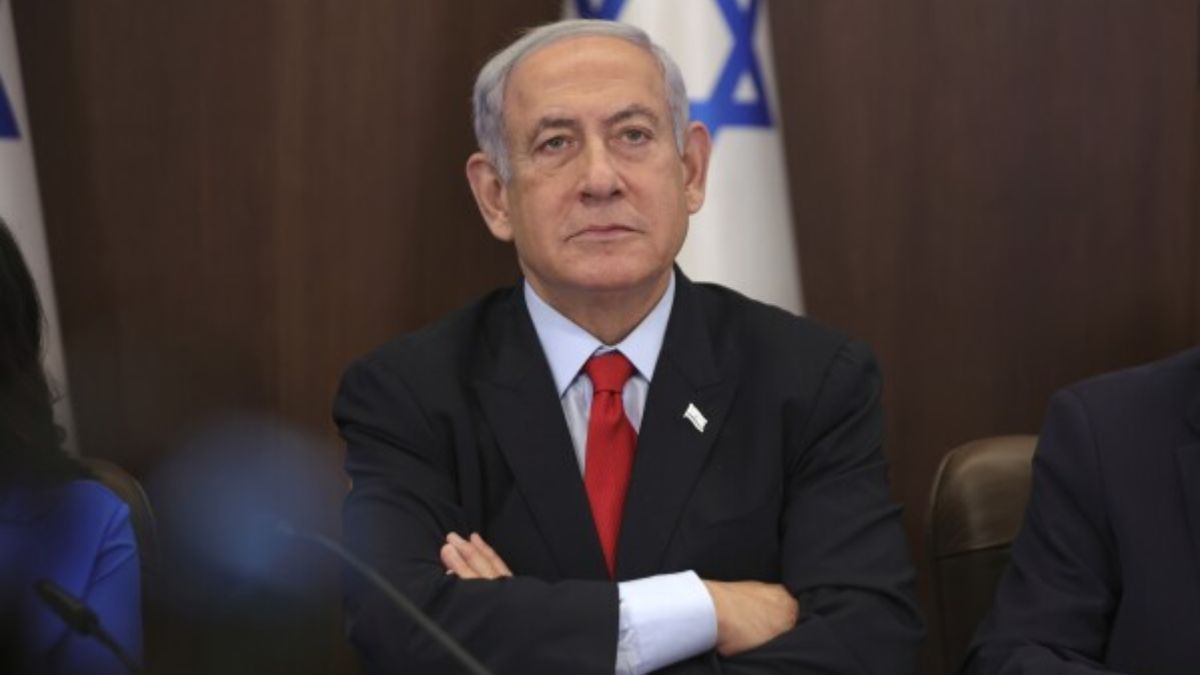Israel Prime Minister Benjamin Netanyahu’s coalition government is at risk of collapse.
Netanyahu and his party are awaiting a vote on Wednesday that could potentially dissolve parliament.
The collapse comes amid the party’s failure to pass a bill that could reverse the long-standing exemption from the military draft for ultra-Orthodox Jews.
The opposition’s call for dissolving the parliament may see the light of the day only if Netanyahu’s ultra-Orthodox coalition partners break with him.
The vote is the most serious challenge to Netanyahu’s government since the war began in Gaza and the coalition’s collapse could have major implications for Israel.
But what happened? What do we know?
Why do the ultra-Orthodox reject military service?
It is mandatory for Jewish people in Israel to serve in the military.
While men need to complete three years and women serve two years in active service, it is followed by years of reserve duty. But here’s the twist — the politically powerful ultra-Orthodox are granted exemptions from service if they are full-time students in religious seminaries.
The exemption dates back to the creation of Israel in 1948.
Back then, the enlistment exemption for the ultra-Orthodox was granted to a small number of gifted scholars as a direct response to the profound loss of Jewish scholarship during the Holocaust.
But today the numbers of those being exempted have reached new heights due to politically powerful religious parties.
While Israel’s Supreme Court said the exemptions were illegal in 2017, repeated extensions and government delay tactics have prevented a replacement law from being passed.
Among Israel’s Jewish majority, mandatory military service is largely seen as a melting pot and rite of passage. That’s exactly why some ultra-Orthodox don’t want their children to serve.
“It mixes together people with very different backgrounds, very different ideas, some people with very immoral ideas,” said 66-year-old Rabbi Ephraim Luft, from the ultra-Orthodox stronghold of Bnei Barak. Luft said the community’s dedication to upholding Jewish commandments protects the country as much as military service.
“Over thousands of years, the Jewish people have stood very strongly against any kind of decrees to force them to give up their religion, they’ve given up their lives for this,” Luft said. “People have to understand there’s no difference between the Spanish Inquisition or the Israeli draft law.”
Why are the ultra-Orthodox parties ready to topple the Israeli govt?
Netanyahu’s coalition relies heavily on two Haredi or “God-fearing” parties.
For new elections to be forced, both these parties including the Shas party would need to vote to dissolve the government.
A spokesperson for the Shas party conveyed to an ultra-Orthodox radio program on Monday that the party currently intends to cast its vote in favour of dissolving parliament.
This of course is contingent upon the absence of a breakthrough in ongoing negotiations. Meanwhile, the other coalition partner, Degel HaTorah, has been making threats to withdraw from the government since last week.
“Basically, they don’t really care about the war and the economic situation of the state and anything else but their communal interest. And the focus of this communal interest is getting the exemption from serving in the army,” said Shuki Friedman, an expert on religion and state affairs and vice president of the Jewish People Policy Institute, a Jerusalem think tank.
Friedman and other experts say the current system is unsustainable. With its high birth rate, the ultra-Orthodox are the fastest-growing segment of Israel’s population, at about four per cent annually. Each year, roughly 13,000 ultra-Orthodox men reach the conscription age of 18, but less than 10 per cent enlist, according to parliament’s State Control Committee, which held a hearing examining the issue.
The shock of the October 7 attack appeared to ignite some enthusiasm among the ultra-Orthodox to serve, but no large enlistment materialised. The army has repeatedly declined to comment on the ultra-Orthodox enlistment rate.
What will happen if the parliament is dissolved?
According to Gayil Talshir, a political science professor at Hebrew University, even if the dissolution vote is successful, it would still need to navigate a series of bureaucratic procedures. This includes further parliamentary votes, a process the current government would likely extend over several weeks or months.
“It will be like a gun that’s been put into position, but that doesn’t mean the coalition is over,” she said. Elections in Israel are currently scheduled for the fall of 2026.
Both Talshir and Friedman believe it’s unlikely the dissolution vote will pass Wednesday. If one ultra-Orthodox party is absent, the vote will not pass and another cannot be brought for six months, Talshir said.
However, there’s also a “valid possibility” the rabbis who advise the ultra-Orthodox parties will say they’ve waited long enough for a draft exemption law because they are facing enormous pressure from their communities, Friedman said.
The army has issued thousands of draft notices to the ultra-Orthodox community, and those who refuse to serve can face arrest. While only around a dozen have been arrested after being stopped for trying to leave the country or for traffic violations, the fear this has inspired is significant, he added.
How will this impact the war?
Netanyahu frequently cites the ongoing war as a reason why Israel needs to provide a united front against its enemies. While the ultra-Orthodox parties remain part of the coalition, they want the war to end as quickly as possible, Talshir said.
“The Haredim think once the war is over, the pressure will be off them and they will be able to get their (military) exemption law,” she said.
With inputs from agencies
)